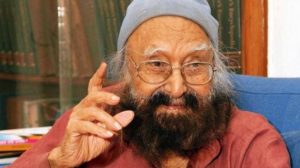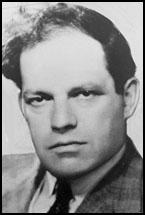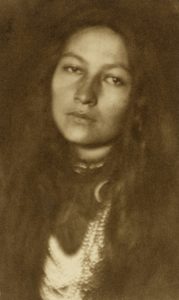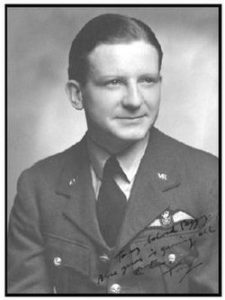We have decided to create the most comprehensive English Summary that will help students with learning and understanding.
The Portrait of A Lady Summary in English by Khushwant Singh
The Portrait of A Lady by Khushwant Singh About the Author
| Author Name | Khushwant Singh |
| Born | 2 February 1915, Hadali, Pakistan |
| Died | 20 March 2014, Sujan Singh Park, Delhi |
| Spouse | Kawal Malik (m. 1939–2001) |
| Education | GCU, Panjab University, King’s College London, The Dickson Poon School of Law, St Stephen’s College |
| Awards | Padma Bhushan, Padma Vibhushan, Punjab Rattan Award |

The Portrait of A Lady Summary in English
“The Portrait of a Lady” is a heart-warming pen picture of Khushwant Singh’s grandmother who brought him up.
The author describes his association with his grandmother and the changes that came about in their relationship with the passage of time. Her simplicity and beauty left an indelible imprint on the poet’s mind.
Khushwant Singh’s grandmother was short, old and slightly bent, and hobbled around the house telling the beads on her rosary. He had seen her look the same for twenty years and to him it seemed that she was really old and could not grow older. It was difficult for him to conceptualise that she could have been young and . pretty; to believe that she had had a husband. His grandfather’s portrait hung on the wall of the drawing room.
He too looked very old arid very grandfatherly. Looking at his portrait one could visualise that he had many grandc hildren but one could not imagine him in his youth with his wife and children.
When Khushwant Singh was still young, his parents left for the city leaving him to the care of his grandmother.
They were good friends. She woke him up each morning, bathed him, dressed him, plastered his wooden slate, gave him breakfast—a stale, buttered chapatti with sugar sprinkled on it and walked him to school. The school was attached to a temple. While Khushwant Singh and the other children sat in the veranda learning the alphabets and morning prayers, his grandmother sat inside the temple reading scriptures. After they had both finished, they would head back home. On their way, she fed the dogs each day with the stale chapattis that she carried with her. When the writer’s parents had settled in the city, they sent for them. This proved to be a turning point in their relationship. The only thing that remained unchanged was their common bedroom.
She could not accompany him to school as he went by the school bus. Now, he went to an English school where they taught science. She could not understand English and did not believe in science. The fact that they were not taught about god made her unhappy. Khushwant Singh’s learning music in school made her unhappier as she felt it was not meant for gentle folk. Her communication with him deteriorated further. But it was when he went to the university and got a separate room that even this link was snapped.
When the writer was going abroad, she went to the railway station to see him off but did not speak a word, only kissed his forehead. The writer believed this was their last physical contact as he was going away for five years. But she was there when he returned and was delighted to see him back. In the evening she collected women from the neighbourhood and beat the drum and sang for hours of the homecoming of warriors. For the first time she missed her prayers.
She was then taken slightly ill. The doctors reassured the family that there was nothing to worry but she stopped talking. She said her end was near. She began to tell the beads of her rosary and her lips moved in a silent prayer before she died.
After her death, her body was laid on the floor, covered in a red shawl. Thousands of sparrows came and sat quietly all around her body. The writer’s mother threw breadcrumbs but the sparrows took no notice of them.
After her cremation they flew away without touching the crumbs.
The Portrait of A Lady Summary Questions and Answers
Question 1.
Why was it hard for the author to believe that the grandmother was once young and pretty?
Answer:
It was difficult for the author to believe that his grandmother was once young and pretty. In fact, the thought was almost revolting. He had seen her old for the last twenty years. He felt she could age no further. The very thought of her playing games as a child seemed quite absurd and undignified.
Question 2.
The grandmother has been portrayed as a very religious lady. What details in the story create this impression?
Answer:
The author recalls his grandmother as a very religious woman. He remembers her hobbling about the house, telling the beads of her rosary. He recalls her morning prayers and her reading scriptures inside the temple. The author recounts how, during the last few days, she spent all her time praying.
Question 3.
The grandmother had a divine beauty. How does the author bring it out?
Answer:
The grandmother was not pretty but had a divine beauty. She dressed in spotless white. Her silver locks were scattered untidily over her pale, puckered face, and her lips constantly moved in an inaudible prayer. The author describes her “like the winter landscape in the mountains”—a personification of “serenity, breathing peace and contentment.”
Question 4.
What proofs do you find of friendship between the grandmother and grandson in the story?
Answer:
The grandmother and grandson were good friends. She got him ready and walked him to and back from school. In the city, they shared a common bedroom. The author’s grandmother saw him off, silently, but kissing him on his forehead, when he went abroad and celebrated his return five years later.
Question 5.
The grandmother was a kind-hearted woman. Give examples in support of your answer.
Answer:
The grandmother was a kind-hearted woman. On her way back from school, she would feed the village dogs with stale chapattis. In the city, when she could not move out, she took to feeding sparrows that came and perched on her legs, shoulders, and head.
Question 6.
“This was the turning point in our friendship.” What was the turning point?
Answer:
The turning point in the friendship arrived when they shifted to the city. They saw less of each other as she could neither accompany him to school, nor understand English. She did not believe in science. She could not keep pace with the author’s modem education that he received in the city school.
Question 7.
Draw a comparison between the author’s village school education and city school education.
Answer:
The village school was attached to a temple and the students were taught the alphabet and morning prayers. The author and his grandmother walked to the school in the village. However, in the city he went by the school bus. He was taught science and English but not taught about god. He was also taught music.
Question 8.
What was the happiest moment of the day for the grandmother?
Answer:
The happiest moment of the day for the grandmother in the city was when she was feeding the sparrows.
They perched on her legs, shoulders, and head but she never shooed them away.
Question 9.
What was ‘the last sign’ of physical contact between the author and the grandmother? Why did the author think that to be the last physical contact?
Answer:
The author was going abroad for five years. His grandmother kissed his forehead. He presumed this as the last sign of physical contact between them. He feared that she would not survive till he returned since he was going away for five years.
Question 10.
Everybody including the sparrows mourned the grandmother’s death. Elaborate.
Answer:
When the grandmother died, thousands of sparrows collected and sat in the courtyard. There was no chirruping. When the author’s mother threw some breadcrumbs for them, they took no notice of the breadcrumbs. They were full of grief at her death and flew away quietly after the cremation.


